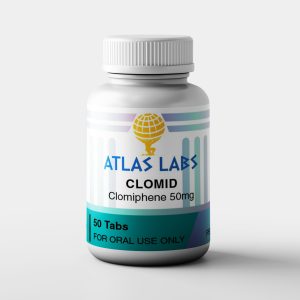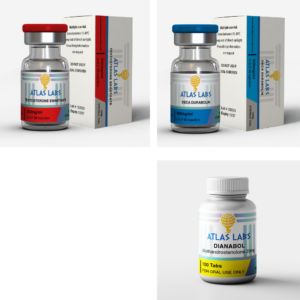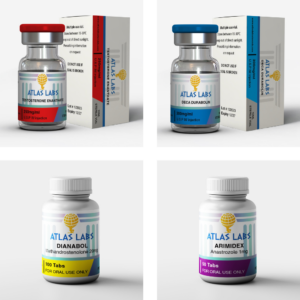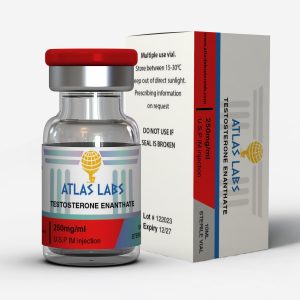When it comes to enhancing muscle growth, recovery, and physical performance, two classes of compounds often come up in conversation: peptides and anabolic steroids. While both can offer powerful results, they work in very different ways and come with distinct advantages, risks, and legal implications. In this article, we’ll break down the key differences between peptides and anabolic steroids, explore their respective benefits, and help you decide which might be right for your goals.
What Are Peptides?
Definition and How They Work
Peptides are short chains of amino acids, typically between 2–50 in length, that act as signaling molecules in the body. They help regulate various biological functions such as hormone production, tissue repair, inflammation, and metabolism. Unlike steroids, which flood the body with synthetic hormones, peptides work more subtly by stimulating the body’s natural hormone production, particularly growth hormone.
Benefits of Peptides for Athletes and Bodybuilders
- Stimulate natural growth hormone release
- Enhance recovery time after intense training
- Improve fat metabolism
- Support joint and tissue repair
- Improve sleep quality and skin health
Because they are more selective in action, peptides are often seen as a gentler entry point into performance enhancement.
Common Types of Peptides for Performance
CJC-1295
CJC-1295 is a growth hormone-releasing hormone (GHRH) analog that promotes sustained HGH release. It has a long half-life, making it convenient for fewer injections. Users typically report better sleep, improved recovery, and lean muscle growth over time.
BPC-157
Known as the “body protective compound,” BPC-157 supports healing of muscles, tendons, ligaments, and even the gastrointestinal tract. It’s popular among athletes recovering from training injuries or looking to speed up healing from surgery.
TB-500
This synthetic version of thymosin beta-4 helps with tissue regeneration and reducing inflammation. It can aid recovery and improve flexibility and mobility in joints, making it ideal for injury-prone individuals.
What Are Anabolic Steroids?
Definition and Mechanism of Action
Anabolic steroids are synthetic derivatives of the male sex hormone testosterone. They increase nitrogen retention and protein synthesis in muscle tissue, allowing users to build muscle mass rapidly. Steroids can also increase red blood cell production, improving endurance and recovery.
Benefits of Anabolic Steroids
- Rapid muscle growth
- Enhanced strength and power
- Improved recovery
- Increased endurance and performance
However, these benefits come with significant hormonal disruption and a higher risk of side effects.
Common Types of Steroids for Muscle Growth
Testosterone (Enanthate, Cypionate, Propionate)
Often used as a base compound, testosterone provides balanced gains in size, strength, and libido. Dosage typically ranges from 300–750mg per week in beginner to intermediate cycles.
Dianabol (Methandrostenolone)
An oral steroid known for quick mass gains and strength. It is commonly used for 4–6 weeks at the start of a bulking cycle. Side effects include water retention and liver stress.
Trenbolone
Tren is a highly potent steroid offering dramatic improvements in physique. It’s used by advanced users for its fat-burning and muscle-hardening properties but comes with significant risks such as night sweats, aggression, and cardiovascular strain.
Key Differences Between Peptides and Steroids
Muscle Growth Effects
- Steroids work quickly and powerfully by directly introducing synthetic hormones into the body. Muscle gains can be noticeable within weeks.
- Peptides stimulate natural hormone release and support long-term improvements. Gains are typically slower and leaner but can be more sustainable.
Side Effects and Safety
Steroids:
- Testosterone suppression
- Liver toxicity (especially with orals)
- Elevated LDL cholesterol and decreased HDL
- Acne and hair loss
- Gynecomastia (development of breast tissue in men)
- Mood swings, aggression, and insomnia
Peptides:
- Generally mild side effects
- Water retention
- Numbness in extremities
- Increased hunger
- Risk of underdosed or impure products from non-reputable sources
Which Should You Use?
For Muscle Mass
If your primary goal is rapid and significant muscle growth, anabolic steroids will deliver more noticeable results in a shorter period. However, they require careful management, proper cycling, and PCT.
For Injury Recovery
Peptides like BPC-157 and TB-500 are unmatched for healing tendons, joints, and ligaments. They offer support without shutting down natural hormone production.
For Fat Loss
Peptides such as CJC-1295 and Ipamorelin can help improve fat metabolism while preserving lean muscle mass. They work best when combined with proper diet and exercise.
For Beginners
New users may want to start with peptides due to their milder side effect profile and ability to enhance wellness as well as physical performance. This allows for gradual improvements without risking hormonal damage.
Frequently Asked Questions
Can I use peptides and steroids together?
Yes, many advanced users combine both. For example, peptides can be used post-cycle to aid recovery and reduce time off between steroid cycles. Others use peptides during cycles to support joint health or enhance growth hormone levels.
Are there natural alternatives?
Improving sleep, managing stress, consuming enough protein, and resistance training naturally stimulate HGH and testosterone. Supplements like creatine, zinc, and vitamin D can also support hormonal health.
Final Thoughts: Matching Your Goals to the Right Compound
Both peptides and anabolic steroids can be powerful tools in your performance arsenal, but they serve different purposes.
- Peptides offer gradual, restorative benefits with lower risk.
- Anabolic steroids deliver fast, dramatic results but require careful planning and post-use recovery.
Before starting either, be sure to research thoroughly, consult a healthcare professional if possible, and always prioritize sourcing from reputable suppliers. Your goals, budget, and risk tolerance will ultimately determine which compound is right for you.
The information provided in this article is intended for educational and research purposes only. It does not constitute medical advice or a recommendation to use any substances discussed. Always consult with a licensed medical professional before beginning any supplement, peptide, or anabolic steroid protocol.
If you’re interested in exploring high-quality research compounds, you can browse our shop here.




Leave a comment